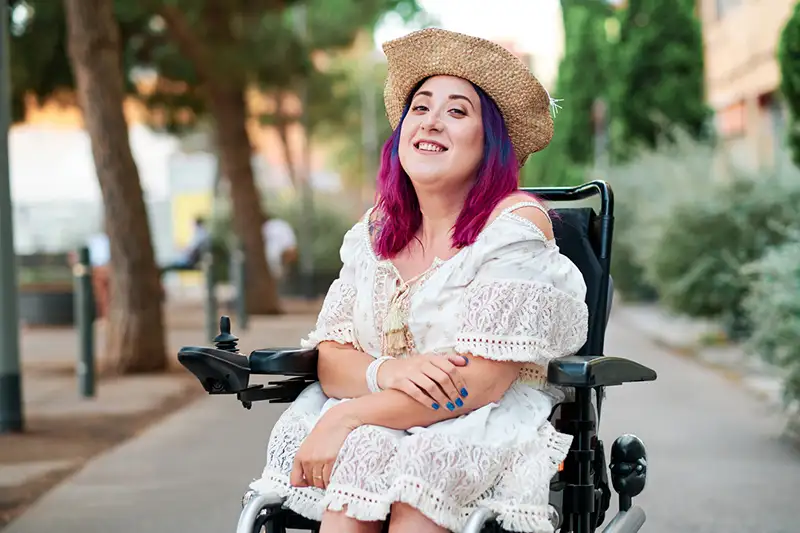Every July 26th, we honor Disability Independence Day—the anniversary of the signing of the Americans with Disabilities Act (ADA) in 1990. This landmark legislation broke barriers for millions of Americans living with disabilities, affirming their right to access, dignity, and independence.
For many cancer patients and survivors, the topic of disability is deeply personal. Whether temporary or long-term, visible or invisible, disabilities can be part of the cancer journey. But disability does not mean defeat. On the contrary, many patients discover new depths of resilience, adapt to life in remarkable ways, and find renewed purpose in their path forward.
Understanding Cancer-Related Disabilities
Cancer and its treatments can impact the body in countless ways, and those effects may linger long after treatment ends. Some patients experience short-term impairments that resolve over time, while others live with chronic or permanent disabilities resulting from their diagnosis or treatment.
Here are just a few of the ways cancer can intersect with disability:
1. Mobility Challenges
Surgery, bone cancer, metastatic disease, or treatment-related nerve damage can cause difficulty walking, standing, or performing daily tasks. Amputations or spinal tumors may result in partial or full loss of mobility.
2. Cognitive Impairment (“Chemo Brain”)
Some cancer treatments cause lingering issues with memory, concentration, and mental clarity. Often referred to as “chemo brain,” this cognitive fog can interfere with work, relationships, and daily routines.
3. Chronic Pain and Fatigue
Pain from nerve damage, scar tissue, or tumor pressure can become long-lasting. Similarly, cancer-related fatigue can be profound, making even simple tasks feel overwhelming.
4. Lymphedema
Certain cancers can result in lymphedema, a lymphatic system disruption that can cause painful swelling, affect limb movement, and increase the likelihood of skin infections like cellulitis.
5. Sensory or Speech Changes
Some treatments impact speech, hearing, or vision. Head and neck cancers may affect facial movement or voice, while radiation and chemotherapy can impact hearing or eyesight.
6. Emotional and Psychological Effects
Depression, anxiety, PTSD, and trauma-related disability can develop during or after cancer care. Mental health is health—and it should be recognized and supported.
Embracing a New Definition of Independence
Disability can be a difficult label to accept—especially for those who didn’t identify with it prior to cancer. But the truth is, independence isn’t defined by what you can do alone. It’s about living with dignity, having access to the support you need, and continuing to engage meaningfully with the world around you.
Through physical therapy, occupational therapy, assistive devices, mental health care, and community support, many survivors find new ways to thrive. It’s not about “bouncing back” to who you were before—but learning to move forward as you are now.
You’re Not Alone: Resources for Cancer-Related Disabilities
Navigating disability can be overwhelming, but you don’t have to go it alone. There are organizations and programs specifically designed to support cancer survivors facing new limitations:
● Cancer and Careers. Helps survivors navigate workplace issues, legal rights under the ADA, and how to communicate about disabilities at work. www.cancerandcareers.org
● American Cancer Society (ACS). Provides information on physical and emotional side effects of cancer and connects patients to local support services. www.cancer.org
● Cancer Support Community. Offers free counseling, support groups, and resources to help you cope with cancer-related challenges—including those related to disability. www.cancersupportcommunity.org
● Centers for Independent Living (CILs). Nonprofit organizations across the U.S. offering peer support, advocacy, and independent living skills training. Find your local CIL through www.ilru.org
● Social Security Disability Benefits. Cancer patients may qualify for SSDI or SSI if they are unable to work due to treatment or long-term effects. www.ssa.gov
A Message of Hope
Disability is not a weakness—it’s a reality for many people living bravely with illness. It’s a part of life that deserves understanding, inclusion, and compassion. And on this Disability Independence Day, we honor those who are not only fighting disease but also adapting, healing, and reimagining life on their terms.
You are not defined by your diagnosis or your limitations. You are defined by your courage, your perseverance, and your ability to keep moving forward—one step, one breath, one victory at a time.
If you or a loved one is facing new challenges due to cancer-related disability, reach out. Support, guidance, and strength are just a call or click away.



